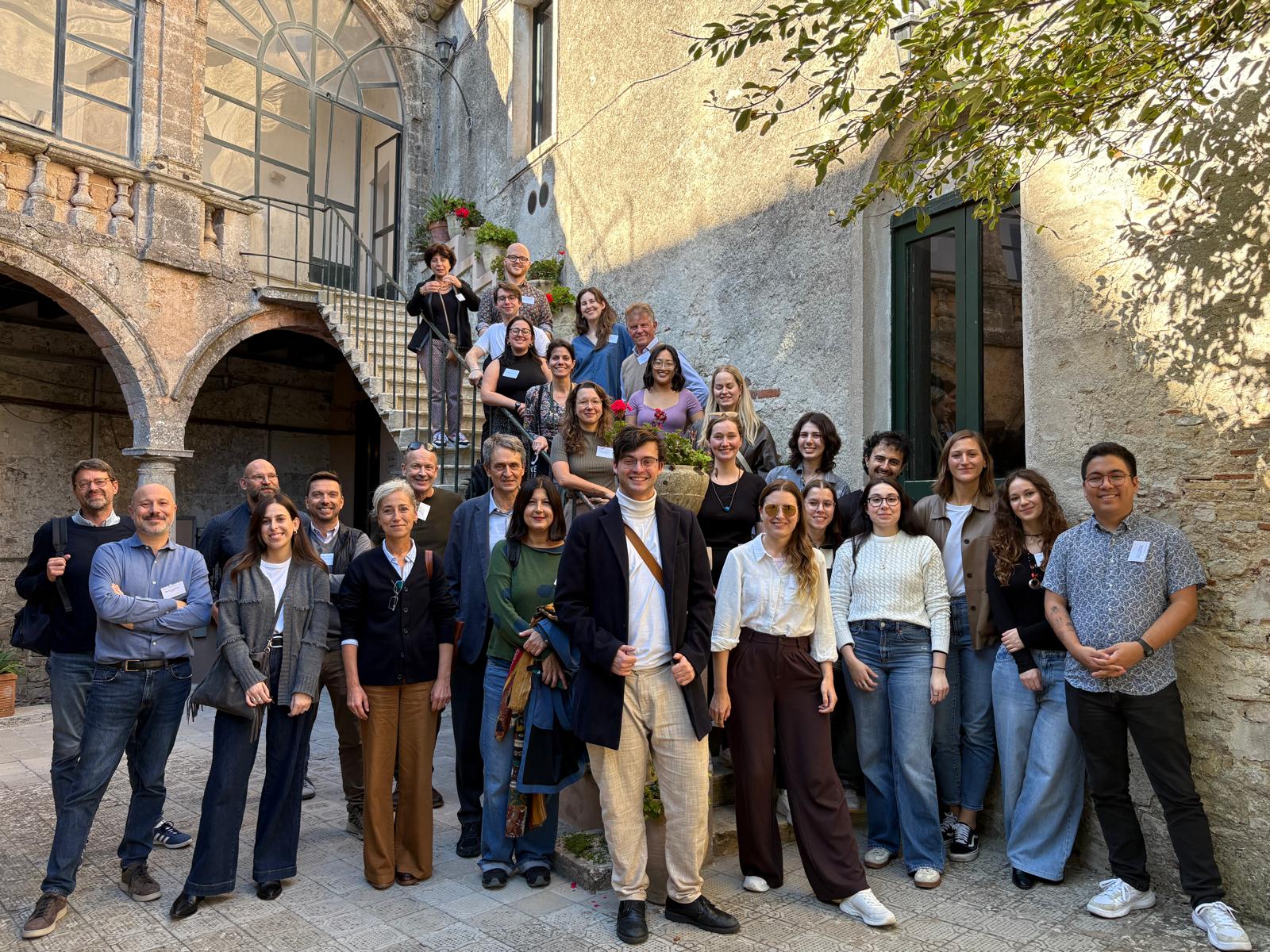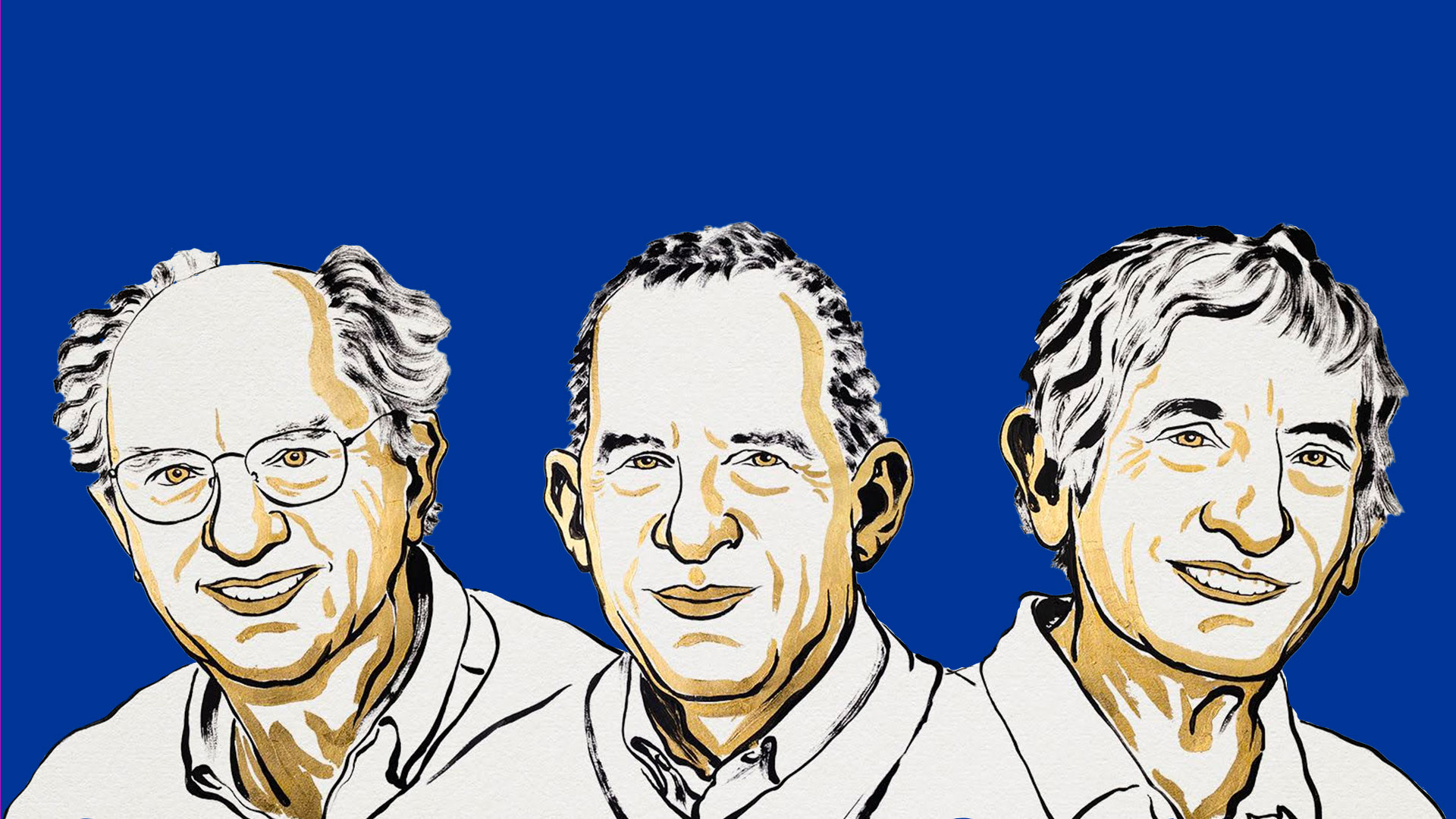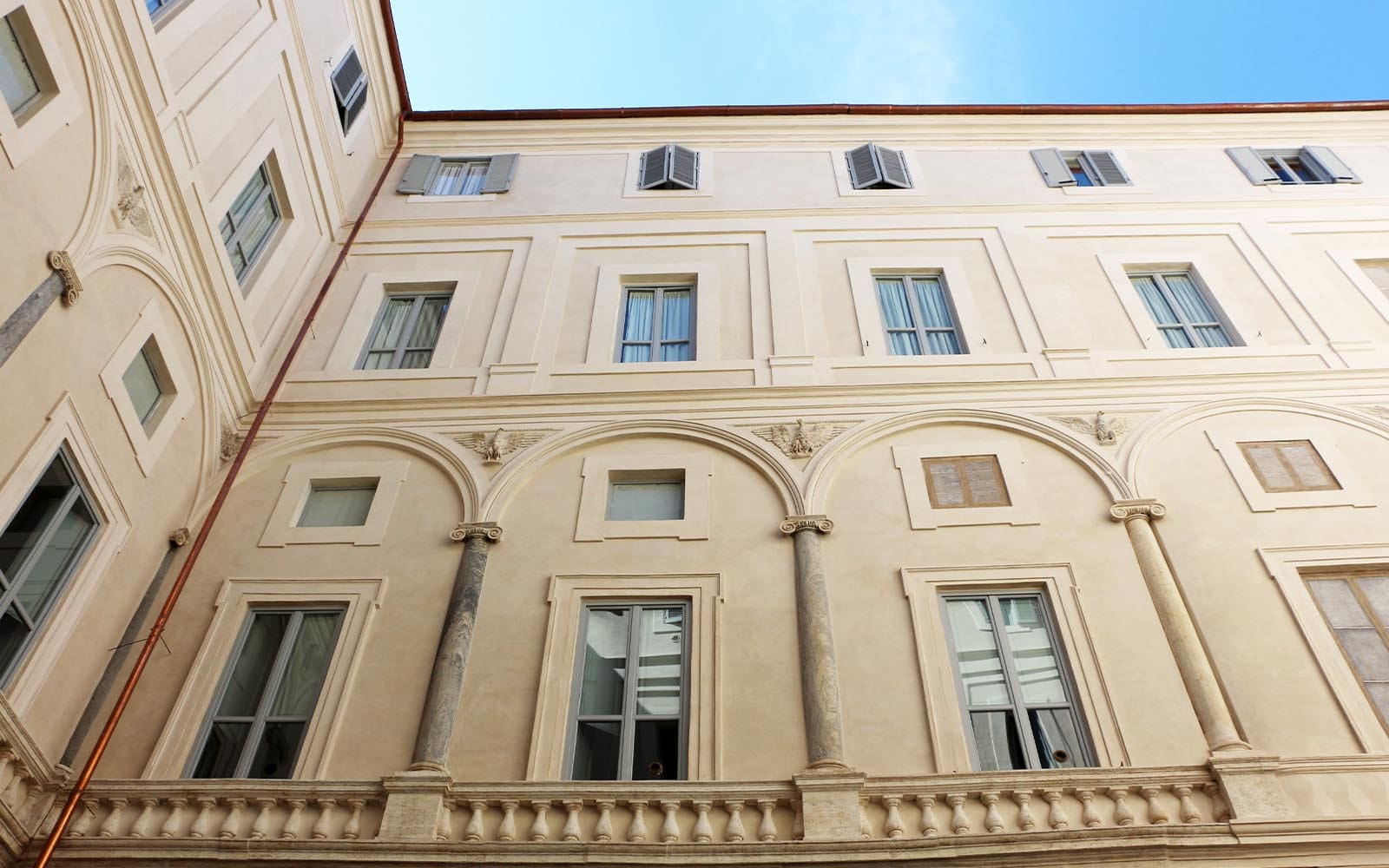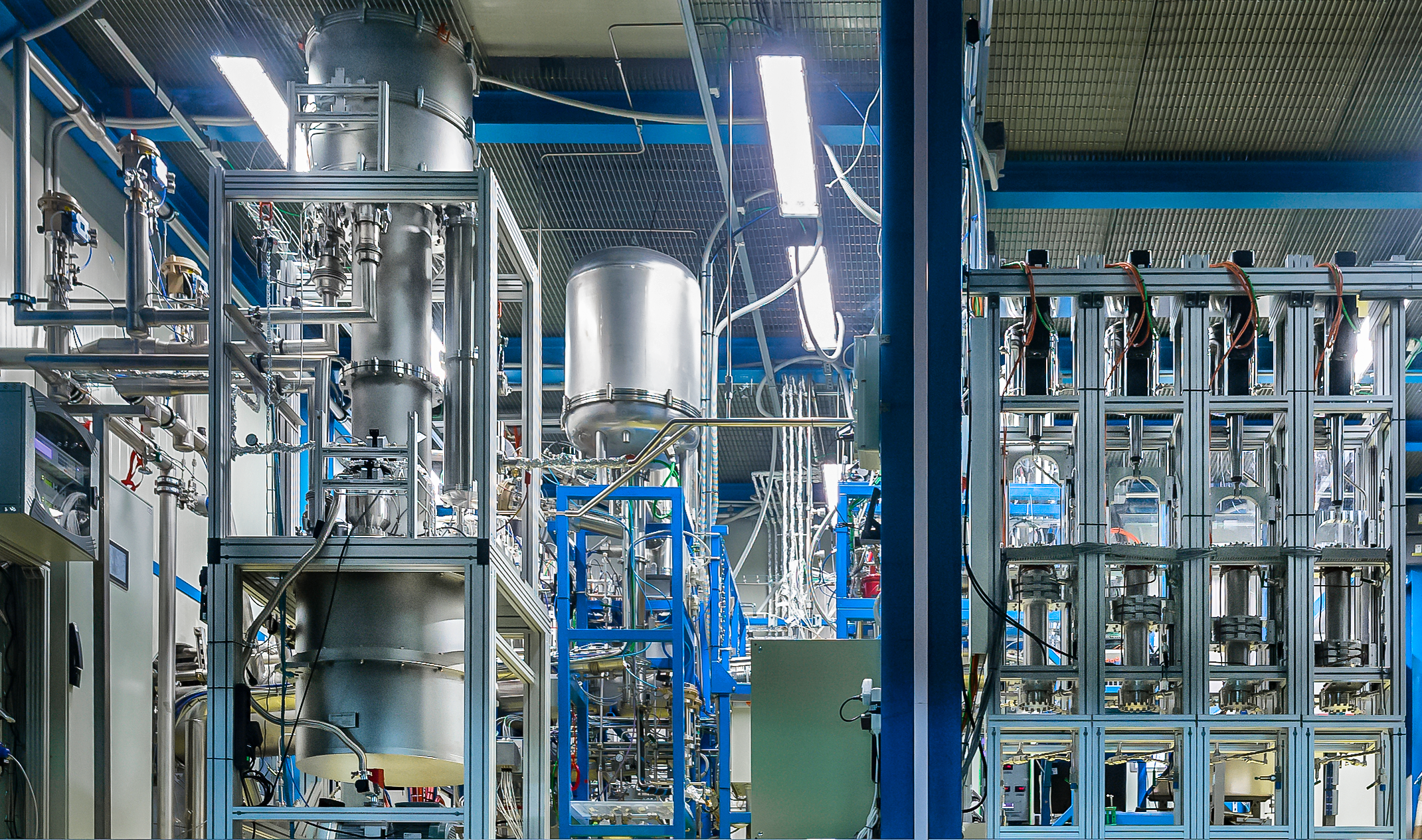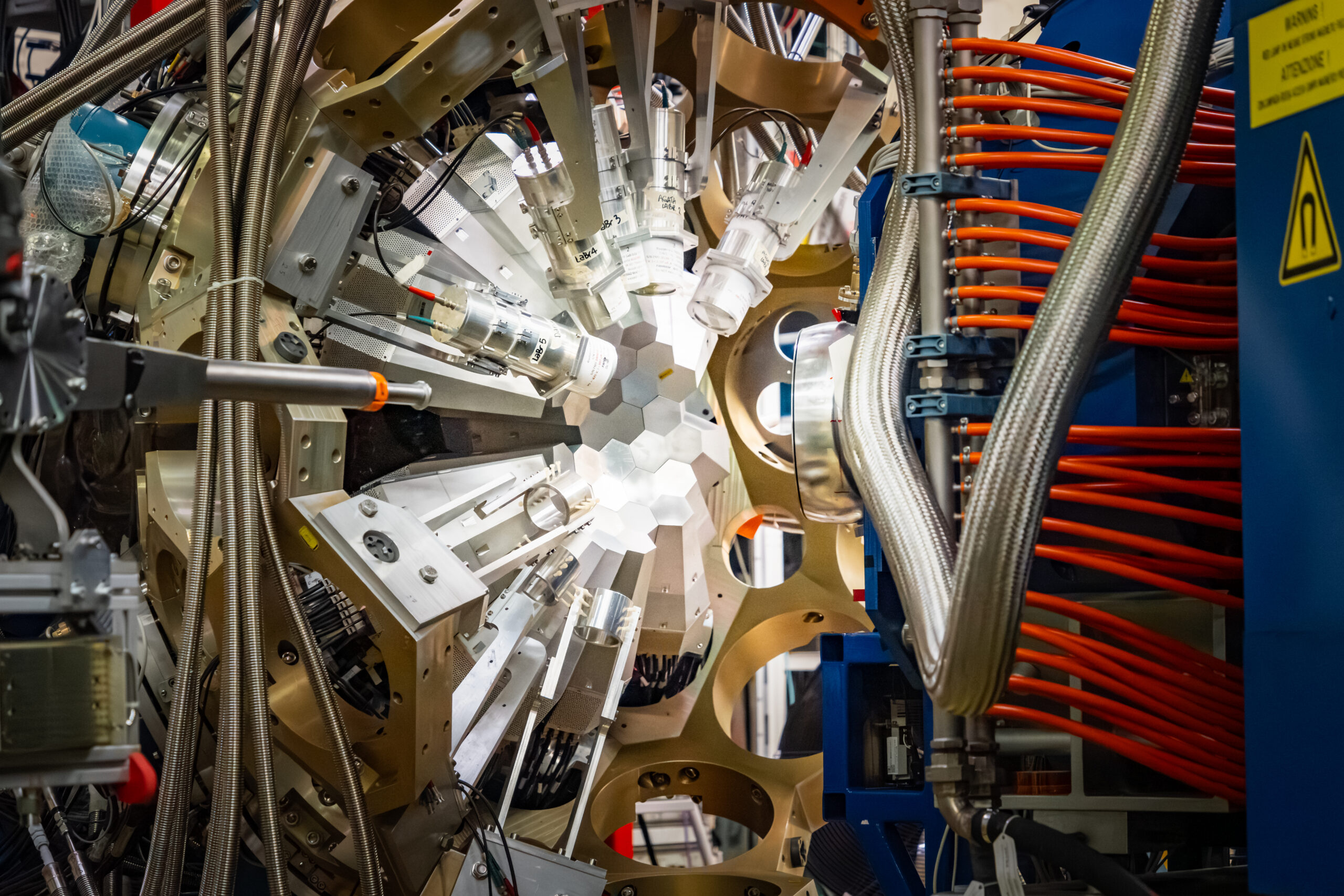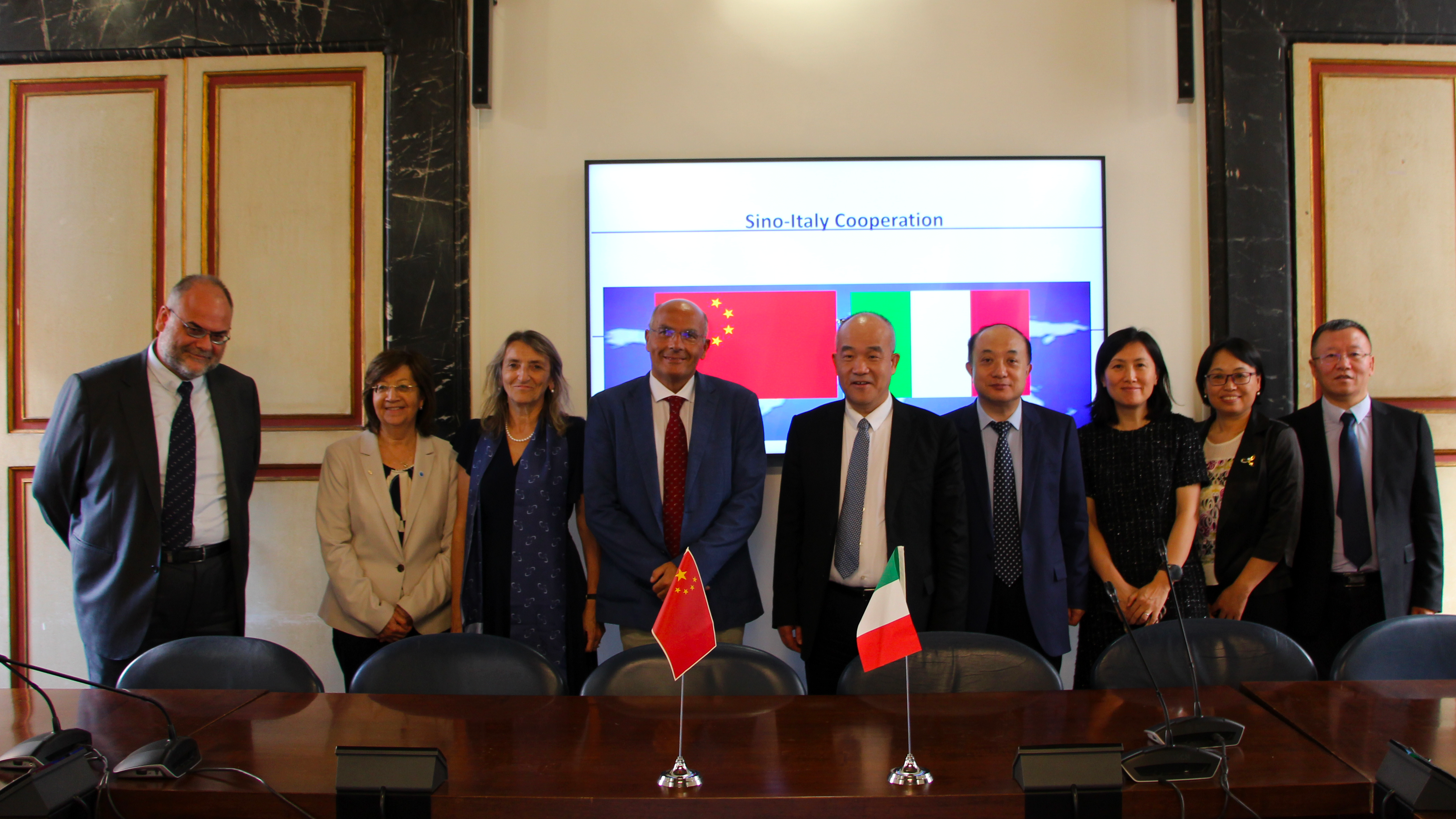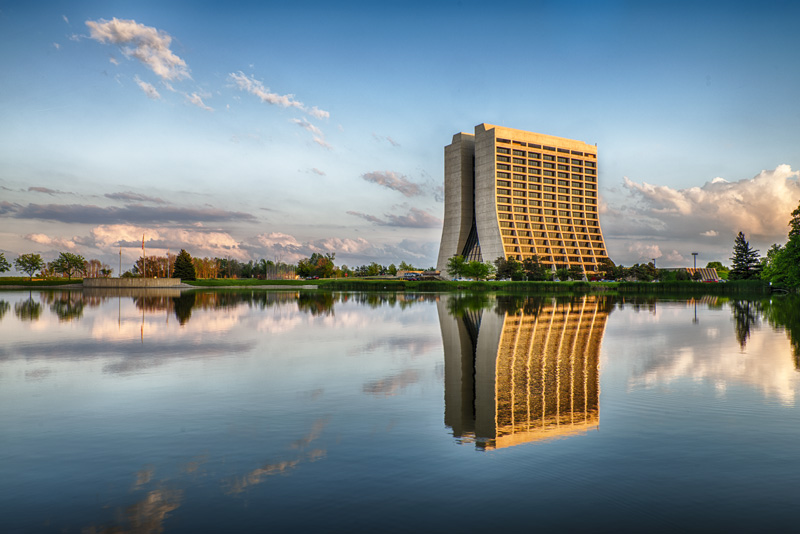 During his latest visit to the USA, the Italian Prime Minister, Matteo Renzi, visited the Fermi National Accelerator Laboratory (Fermilab), one of the most important particle physics centres in the US, with which Italy, through the INFN and important Italian companies, leaders in frontier technologies, has signed numerous research and collaboration agreements. During the visit, the Prime Minister was accompanied by a delegation of Italian physicists, including Nobel laureate Carlo Rubbia, Panofsky prize winner Luciano Ristori and the Italian physicists Antonio Masiero (INFN Vice President), Giorgio Bellettini, Sergio Bertolucci and Carlo Pagani. Since the 80s, many Italian researchers, more than 130 in 2015, have been working at Fermilab with important roles. They are engaged in experiments studying neutrinos, with NOvA, LBNF/DUNE and ICARUS – conceived by Carlo Rubbia and in operation, before being included in the Fermilab programmes, at the INFN Gran Sasso Laboratories as part of the CERN Neutrinos to Gran Sasso project – and experiments studing muons, as Muon g-2 and Mu2e. As part of the muon research programme, a major order for the accelerator magnets has been placed with Italian industry. Another important joint research front is the study of dark matter with the Dark Side experiment at the Gran Sasso National Laboratories, based on argon purification, made possible thanks to the know-how of Fermilab and the technologies of Italian industry. Theoretical physicists, on the other hand, are engaged in studies on the QCD lattice and simulations. Every year, moreover, the Italians at Fermilab Association, through the INFN, funds 20-30 summer scholarships for physicists and engineers who follow a study programme at the American laboratory.
During his latest visit to the USA, the Italian Prime Minister, Matteo Renzi, visited the Fermi National Accelerator Laboratory (Fermilab), one of the most important particle physics centres in the US, with which Italy, through the INFN and important Italian companies, leaders in frontier technologies, has signed numerous research and collaboration agreements. During the visit, the Prime Minister was accompanied by a delegation of Italian physicists, including Nobel laureate Carlo Rubbia, Panofsky prize winner Luciano Ristori and the Italian physicists Antonio Masiero (INFN Vice President), Giorgio Bellettini, Sergio Bertolucci and Carlo Pagani. Since the 80s, many Italian researchers, more than 130 in 2015, have been working at Fermilab with important roles. They are engaged in experiments studying neutrinos, with NOvA, LBNF/DUNE and ICARUS – conceived by Carlo Rubbia and in operation, before being included in the Fermilab programmes, at the INFN Gran Sasso Laboratories as part of the CERN Neutrinos to Gran Sasso project – and experiments studing muons, as Muon g-2 and Mu2e. As part of the muon research programme, a major order for the accelerator magnets has been placed with Italian industry. Another important joint research front is the study of dark matter with the Dark Side experiment at the Gran Sasso National Laboratories, based on argon purification, made possible thanks to the know-how of Fermilab and the technologies of Italian industry. Theoretical physicists, on the other hand, are engaged in studies on the QCD lattice and simulations. Every year, moreover, the Italians at Fermilab Association, through the INFN, funds 20-30 summer scholarships for physicists and engineers who follow a study programme at the American laboratory.
Read more on Fermilab website “Prime Minister of Italy visits Fermilab”
